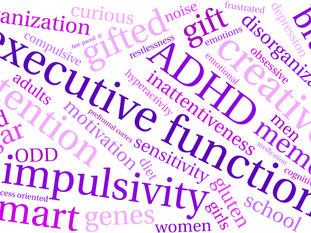
Neurodivergence and Role-Playing Games
0
30
0
by Dee Cárdenas, MAT

Thank you for rolling for initiative! Welcome back to A Heroic Journey. Role-playing games (RPGs) offer far more than simple entertainment for neurodivergent children. They are powerful, transformative experiences that provide unique opportunities for social learning, emotional development, and personal expression.
Understanding the Magic of RPGs
Neurodivergent children often struggle with traditional social interactions. RPGs create a structured yet flexibly responsive environment where they can safely explore complex social dynamics. Unlike unstructured social situations that can feel overwhelming, tabletop RPGs provide clear rules, predictable frameworks, and collaborative storytelling that can be comforting to players.
Neurodivergence and Role Playing Games: Practical Benefits
Social Skills Development
RPGs teach critical social skills in a low-pressure, safe-to-fail, engaging context:
Communication: Players are drawn through play to articulate their characters' thoughts and actions. They can practice verbal expression in a supportive setting.
Empathy: By embodying different characters, players develop perspective-taking skills and emotional understanding of other points of view.
Collaboration: Cooperative gameplay encourages teamwork and negotiation, skills that can be challenging for all players, not only those who are neurodiverse.
Self-Advocacy: In the midst of the game, participants must defend or assess decisions about their actions. This may mean standing by their choices that work out or hearing the immediate feedback of natural consequences from less ideal choices.
Leadership: It may also mean assisting a fellow player or the group with ideas or suggestions, and advocating for any they might champion.
Emotional Regulation and Exploration
These games offer a unique space for emotional exploration:
Characters become safe proxies through which children can experiment with different emotional responses. Players can also safely experiment with other ways of being or explore alternative ways to interact with others.
The game's narrative structure provides predictability while allowing for creative problem-solving. As in life, the choices may feel very wide open, but unlike IRL, there are closely proscribed rules dictating the outcomes.
Challenging in-game scenarios helps children develop emotional resilience in a controlled environment. An understanding group and a compassionate game master (GM) can help a frustrated player navigate disappointment.
Cognitive Strengths Amplified
Many neurodivergent traits become superpowers in RPG settings:
Detail-oriented thinking helps in tracking complex game rules and character interactions
Creative or out-of-the-box problem-solving is celebrated and rewarded, even if it doesn’t work out in-game
Hyperfocus can become an asset when deeply engaging with character development
Implementation:
Sensory-Friendly Adaptation
Thoughtful RPG facilitators can modify games to be neurodiversity friendly:
Providing visual character sheets and clear rules
Offering sensory-friendly sound protection, digital dice rollers and visually uncluttered game materials and playing space
Creating flexible character creation processes to allow the GM to say “yes” to players as often as possible
Allowing alternative communication methods during gameplay. Direct messaging (DMs) or even handwritten notes are great ways for players to communicate with their GM.
Choosing the Right RPG
Not all RPGs are created equal for neurodivergent children. Look for:
Simple, clear rule systems
Cooperative gameplay mechanics
Character creation that allows detailed customization
Supportive, patient GMs who understand neurodiversity or who know your child well. The GM can be a parent!
Recommended RPGs for Neurodivergent Children
1. Dungeon & Dragons Starter Sets: Structured yet creative
2. Kids on Bikes: Narrative-driven with flexible rules
3. No Thank You, Evil!: Specifically designed for younger players
4. Masks: A New Generation: Focuses on character emotions and growth
Creating an Inclusive RPG Environment
Parents and game masters can support neurodivergent players by:
Establishing clear expectations
Reviewing the rules at the start of game play, then repeating as needed
Using visual or auditory cues
Providing breaks
Checking in frequently with players
Celebrating individual playing styles
Emphasizing fun over competitive achievement
Conclusion
RPGs are more than just games for neurodivergent children—they're transformative experiences that celebrate unique perspectives, build confidence, and create meaningful social connections.
By understanding and embracing the potential of RPGs, we can provide neurodivergent children with powerful tools for personal growth, social learning, and unbridled imagination.
Your Next Quest
Your next quest involves three tasks:
This one is quite simple. Subscribe to join our party. We’d LOVE to have you along.
Please share this newsletter with others who may find value in this unique intersection of gaming and child development.
This final task is only for the very bravest among our party. Come out from the shadows and comment down below on what we’ve written. Agree? Fabulous…tell us how we rolled a Nat 20! Disagree? Also fabulous. Tell us how we rolled a critical failure. Got a question? Ask it…we may not have the answer you’re looking for, but let’s get this community rolling together. We can explore how the roll of a die can become a catalyst for growth, how a character sheet can become a roadmap for development, and how gathered around a table telling stories together, we can help our children become their own heroes.
Next time: " Tales from Around the Gaming Table: The Intersection of Creativity, Comedy, Compassion and Grit”



